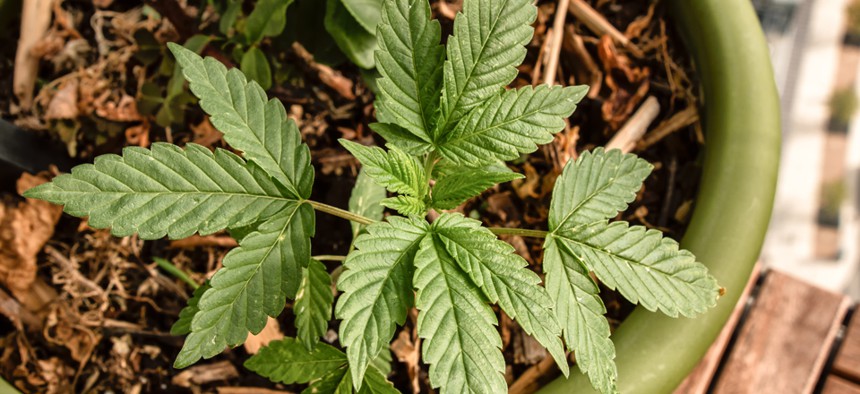Congress Will Block D.C. Pot Referendum

Atomazul/Shutterstock.com
Spending bill prevents city from using funds to implement ballot initiative.
Congress plans to block Washington, D.C., from implementing its recently passed ballot initiative legalizing marijuana, according to legislative text released late Tuesday.
The sweeping omnibus appropriations bill includes a provision that appears to prohibit the District of Columbia from spending any taxpayer funds to carry out marijuana legalization. It does not, however, affect a separate decriminalization measure passed by the City Council this spring, and leaves the city's medical-marijuana infrastructure intact. The exact meaning of the language, which Republicans and Democrats appeared to be interpreting differently, will be more clear when the House and Senate Appropriations Committees issue full reports explaining the legislation's implications.
House Republicans had been pushing for language in the bill that would have upended legalization, decriminalization, and medical marijuana. But negotiators whittled the language down to target only the most recently passed initiative, which has yet to be implemented.
The omnibus spending bill must be passed by Dec. 12 to avoid a government shutdown, so even those opposed to the measure are unlikely to scuttle the bill's passage because of the high stakes involved if the omnibus fails.
Senate Majority Leader Harry Reid said Tuesday he was against the GOP effort, but didn't call it a deal-breaker.
"If they put it in there, it's going to be hard to take it out over here, but I oppose it," Reid said.
District activists have been more vocal, complaining that any effort to block the initiative would thwart the will of local voters and impinge on the city's sovereignty.
District residents voted resoundingly—the initiative garnered nearly 70 percent of the vote—last month to pass Initiative 71, which would allow residents to possess up to 2 ounces of marijuana, grow up to six marijuana plants, and transfer without sale up to 1 ounce to another person.
The council's decriminalization bill, which first went into effect in July, reduces the penalty for residents carrying less than an ounce of marijuana to a $25 fine. Police are also prohibited from asking anyone in possession of less than an ounce to produce identification.
Since the D.C. Financial Control Board ended its activities in 2001, Congress has mostly left the District to govern its own affairs. But Congress still has the authority to tell the city how to spend its money and occasionally does so, with abortion being the most common battleground issue.
CORRECTION: An earlier version of this story incorrectly described the effect the omnibus spending bill would have on the District's marijuana laws.






